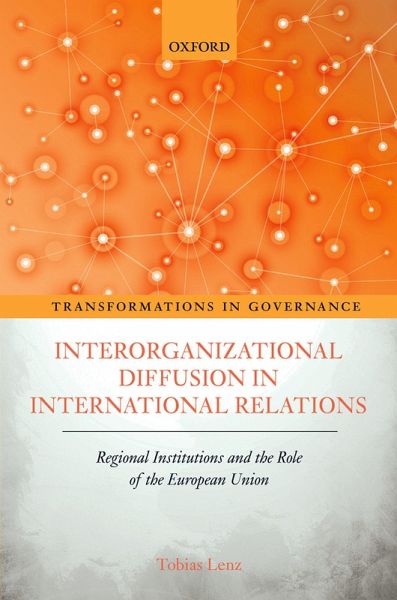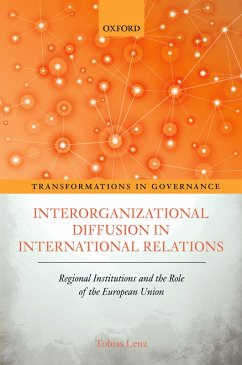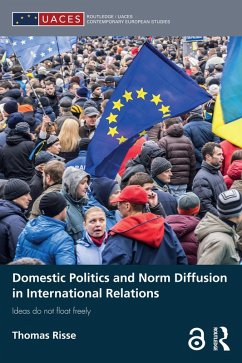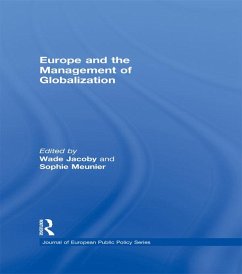
Interorganizational Diffusion in International Relations (eBook, ePUB)
Regional Institutions and the Role of the European Union
Versandkostenfrei!
Sofort per Download lieferbar
43,95 €
inkl. MwSt.
Weitere Ausgaben:

PAYBACK Punkte
22 °P sammeln!
This is an open access title available under the terms of a CC BY-NC-ND 4.0 International licence. It is free to read at Oxford Scholarship Online and offered as a free PDF download from OUP and selected open access locations. How and under what conditions does the European Union (EU) shape processes of institution building in other regional organizations? Interorganizational Diffusion in International Relations: Regional Institutions and the Role of the European Union develops and tests a theory of interorganizational diffusion in international relations that explains how successful pioneer o...
This is an open access title available under the terms of a CC BY-NC-ND 4.0 International licence. It is free to read at Oxford Scholarship Online and offered as a free PDF download from OUP and selected open access locations. How and under what conditions does the European Union (EU) shape processes of institution building in other regional organizations? Interorganizational Diffusion in International Relations: Regional Institutions and the Role of the European Union develops and tests a theory of interorganizational diffusion in international relations that explains how successful pioneer organizations shape institutional choices in other organizations by affecting the institutional preferences and bargaining strategies of national governments. The author argues that Europe's foremost regional organization systematically affects institution building abroad, but that such influence varies across different types of organizations. Mixing quantitative and qualitative methods, it shows how the EU institutionally strengthens regional organizations through active engagement and by building its own institutions at home. Yet, the contractual nature of other regional organizations bounds this causal influence; EU influence makes a distinguishable difference primarily in those organizations that, like the EU itself, rest on an open-ended contract. Evidence for these claims is drawn from the statistical analysis of a dataset on the institutionalization of 35 regional organizations in the period from 1950 to 2017 as well as detailed single and comparative case studies on institutional creation and change in the Southern African Development Community, Mercosur, the Association of Southeast Asian Nations, and the North American Free Trade Agreement. Transformations in Governance is a major academic book series from Oxford University Press. It is designed to accommodate the impressive growth of research in comparative politics, international relations, public policy, federalism, environmental and urban studies concerned with the dispersion of authority from central states up to supranational institutions, down to subnational governments, and side-ways to public-private networks. It brings together work that significantly advances our understanding of the organization, causes, and consequences of multilevel and complex governance. The series is selective, containing annually a small number of books of exceptionally high quality by leading and emerging scholars. The series targets mainly single-authored or co-authored work, but it is pluralistic in terms of disciplinary specialization, research design, method, and geographical scope. Case studies as well as comparative studies, historical as well as contemporary studies, and studies with a national, regional, or international focus are all central to its aims. Authors use qualitative, quantitative, formal modeling, or mixed methods. A trade mark of the books is that they combine scholarly rigour with readable prose and an attractive production style. The series is edited by Liesbet Hooghe and Gary Marks of the University of North Carolina, Chapel Hill, and the VU Amsterdam, and Walter Mattli of the University of Oxford.
Dieser Download kann aus rechtlichen Gründen nur mit Rechnungsadresse in A, B, BG, CY, CZ, D, DK, EW, E, FIN, F, GR, HR, H, IRL, I, LT, L, LR, M, NL, PL, P, R, S, SLO, SK ausgeliefert werden.













